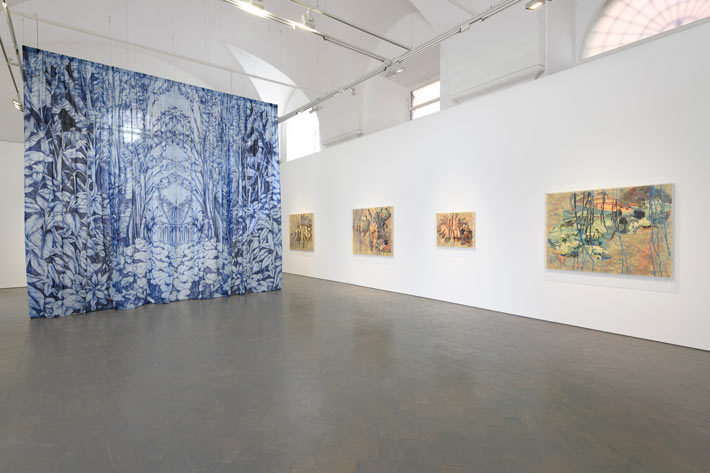
Pietro Ruffo presents The Planetary Garden, a solo exhibition featuring new work that reflect on human evolution and our interactions with Earth.
Since the late 1990s, Ruffo’s practice has examined some of the most pressing social matters of our time, from the legacy of European colonialism and imperialism to the migrant crisis of the past two decades. The Planetary Garden continues Ruffo’s ongoing exploration of humankind’s relationship to the natural world, and of the impact of human activities upon the climate.
In the exhibition, Ruffo deploys the current notion of anthropocene – the proposed idea of a geological era describing the most recent period in Earth’s history, when human activity started to have a significant impact on the planet’s climate and ecosystems – keeping a critical perspective on the term. The artist notes:
“Our selfishness has allowed us to use the environment to our liking, and the term anthropocene is nothing more than the further anthropocentric view of geological eras. In these works, the concept of anthropocene is layered in composite images on paper applied on canvas. Reproductions of ancient maps, scientific illustrations, view of classical Rome, and landscapes are drawn and painted upon in ink and oil, cut out in the shape of flowers and plants, and then pinned again on the surface of the works. Skulls, a recurring theme in the series, take on a double meaning: they are a reflection on human evolution, as well as classic symbols of vanitas, a reminder of our species’ eventual extinction. The luxurious vegetation printed on it refers to the prehistoric forest that used to cover our planet fifty-five million years ago, when one or more meteors hit Earth, causing a period of intense global warming and the extinction of several living species. Both a backdrop and a stage drape, the installation hint to the subconscious trope of the primeval forest, the Garden of Eden from which humans were eventually banned according to the Bible. |
|
